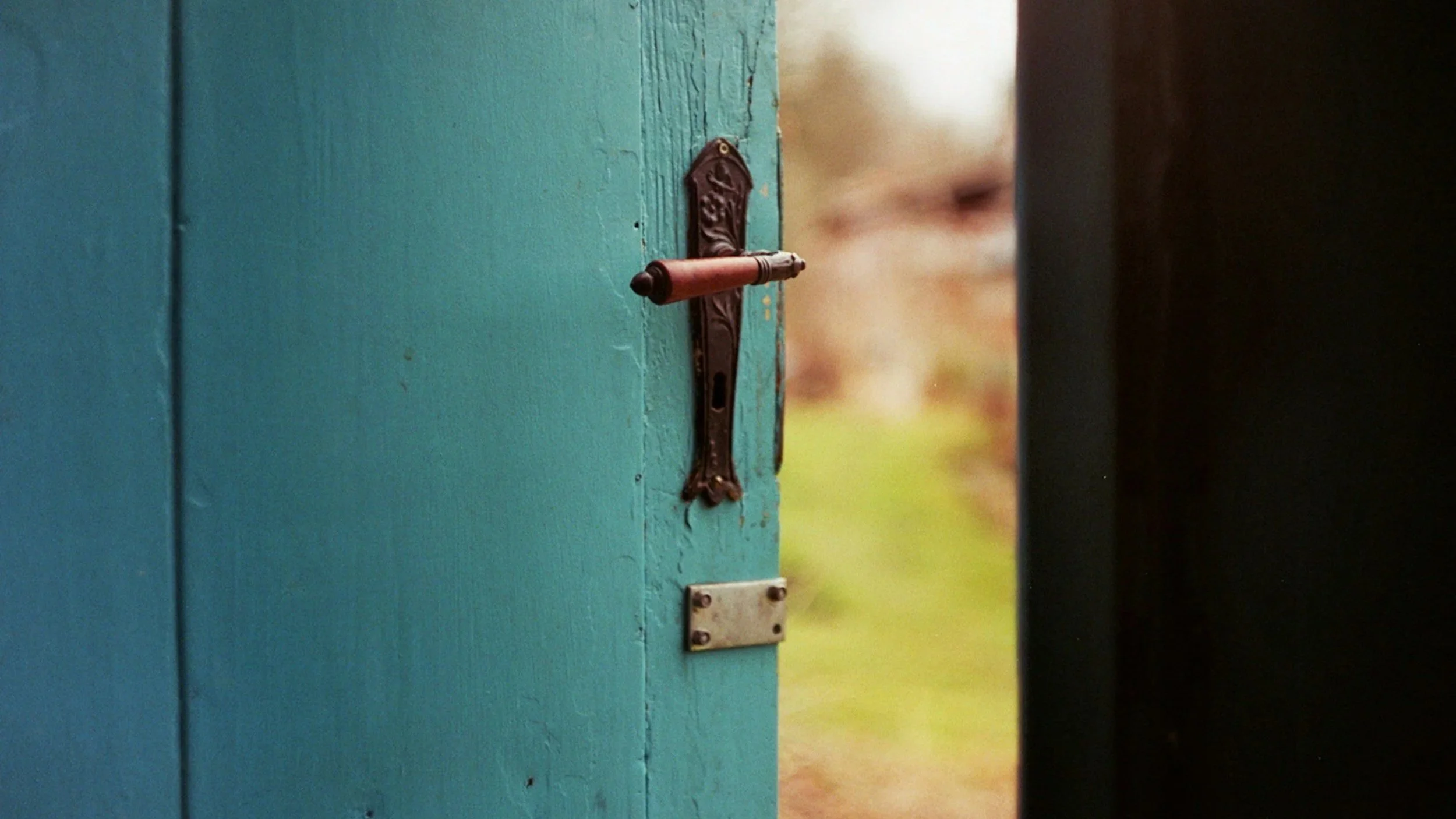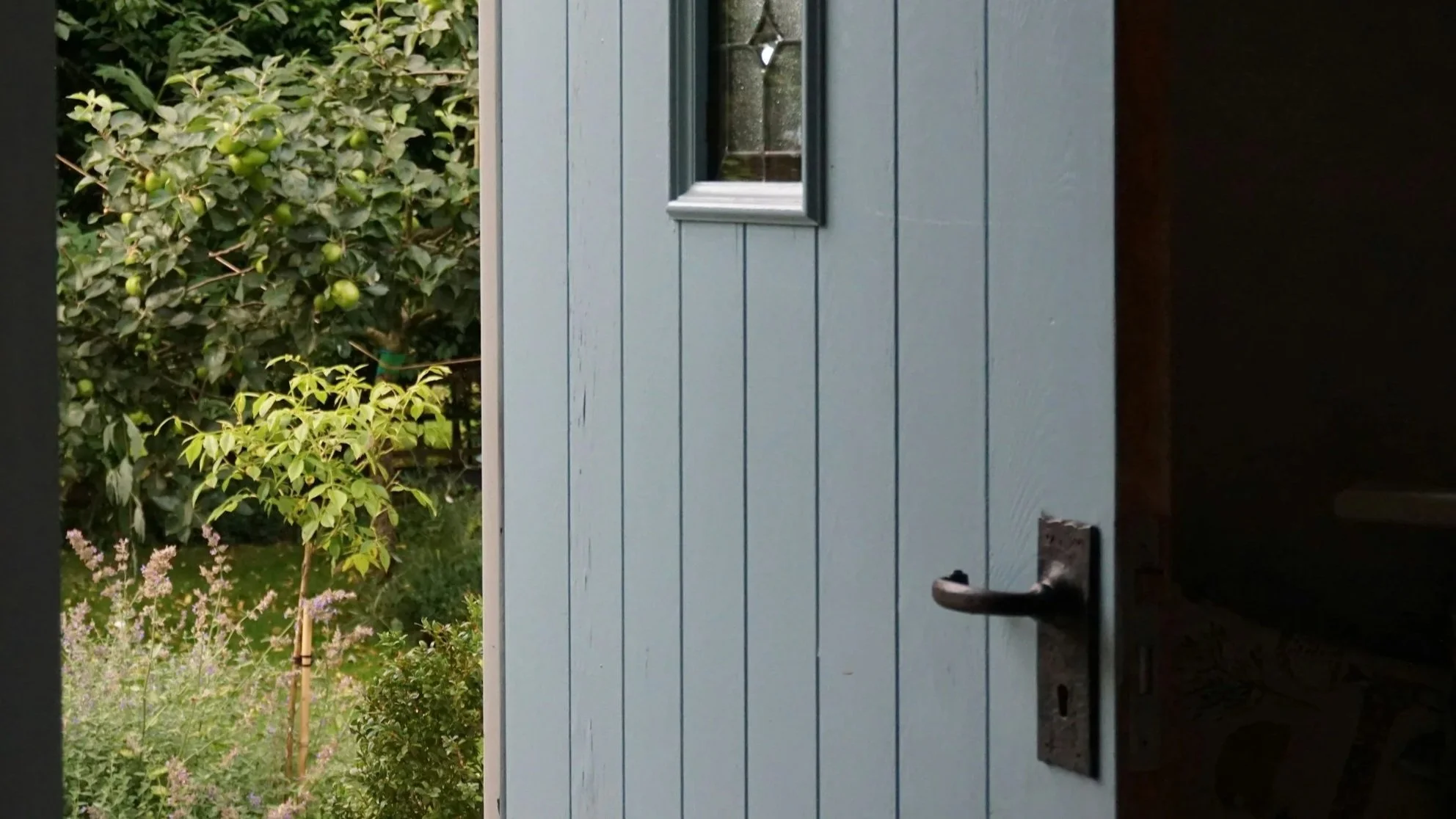Feeling Hopeless? 8 Small but Helpful Ways to Make Grief a Tiny Bit Easier
Grief can make reading hard. Want to listen to this article instead? Find its corresponding podcast episode here.
There are seasons when grief doesn’t just hurt. It hollows you out. It changes your relationship to yourself, to the world, to time, to meaning, and… to hope.
There are days—maybe weeks, maybe longer—when everything feels so heavy that even getting out of bed feels like an impossible feat.
If you’ve been in that place, you know that society’s usual “self-care tips” don’t cut it. You don’t need a new morning routine or a fancy face mask. You need a reason to not pull the covers back over your head.
To be clear, this post isn’t here to fix your grief. That’s not possible—and also not the point.
What this blog can offer you is a handful of small, oddly practical, sometimes darkly funny ways to keep moving through the hopelessness. These are ideas I’ve used, taught, and watched grieving people implement on their worst days. Try them on and see if they work for you. Or save this list to revisit later. As always, take what resonates and discard the rest.
Here are eight small but helpful ways to make grief just a little bit easier—especially when everything feels impossible:
1. Make a List of Things to Stay Up For
You’ve probably heard people talk about “something to get up for.” But sometimes the getting up part happens—and then the next wave of grief hits. That’s why I challenge grievers to make a list of things to stay up for.
Ask yourself:
What—or who—keeps me from going back to bed?
What holds my attention—even slightly—through the fog of grief?
What tethers me to the day when I want to disappear into the couch cushions?
Your list might include:
The way afternoon light comes through one window
Feeding a pet or caring for someone else
A favorite TV show or podcast releasing a new episode
Walking or driving to the park
Making yourself a meal—whether that’s cereal or soup
This list of things to stay up for isn’t about joy or happiness. Those emotions might feel inaccessible to you right now. This is about endurance. And naming the small reasons you stay up is part of honoring how hard it is to exist right now—and how you’re still doing it.
2. Start a “Nope” List Instead of a To-Do List
Society often mistakes busyness for healing. But when you’re grieving, having lots of things to do can just feel like more pressure to “get over it” and act like your heart isn’t broken. Instead of goading yourself to get busy in the midst of hopelessness, why not give yourself permission to opt out?
Try making a list of things you refuse to do. For instance:
I will not respond to texts that drain me
I will not put on a “brave face” for anyone
I will not pretend I’m okay
I will not say yes to things I resent
You can even add silly ones:
I will not explain my resting grief face
I will not wear pants with buttons
I will not attend another baby shower unless bribed with cake
As a bonus, this list isn’t just about “nope-ing” out of things for the hell of it. It can also give you clues to where you’d like to set boundaries around your time, energy, and relationships—even if those boundaries only exist in this season of your grief. Boundaries can be hard—but this tiny ritual lets you start naming them, one “nope” at a time.
3. Choose One Tiny Thing to Care About
When everything feels pointless, you don’t need a five-year plan. You need one flicker of care. One anchor to the world, even if you’re the only person who gives a crap about it.
Here are a few of my “small cares” to inspire yours:
Updates from the “dandelion crayon girl” on TikTok
Watching my wife do nighttime zoomies with our cat
My neighbors’ clever holiday decorations, which they change out every 3-6 weeks
The second season of Blue Eye Samurai on Netflix
Seeing my best friend’s memorial tree bloom next June
Watching a relative get married next fall
Your one tiny thing doesn’t need to be deep or profound; just allow something to matter to you for a minute.
It’s not about distraction or magically conjuring up hope—it’s about letting your heart practice staying open to the world, one little thing at a time.
4. Make Every Day a Scavenger Hunt for Beauty (or for Signs From Your Person)
This is a practice I return to often with grieving clients, inspired by an interview I did many years ago with Cheryl Strayed, author of Wild.
Think of it like a personal challenge: Can you find one small thing of beauty today? A single thread of connection to your person, your body, the world?
Maybe it’s a song on the radio, a butterfly that lands on your sleeve, a meme that makes you laugh through tears, or a blooming tree in your yard.
If you’re grieving the death of a loved one, check out this article about using a signs and symbols library to connect with someone who has died. It can help you expand your “beauty scavenger hunt clue collection” and find even more things that feel grounding to you.
5. Give Your Grief a Name and Talk to It
When grief gets overwhelming, giving it a name can help separate it from you and give you the power to talk back to it. You might consider a cartoon monster name like “Griefzilla,” a place name like “The Pit,” a human name like, “George,” or simply “Grief.” It can be something ridiculous, something sacred, or both.
You might talk to it like this:
“You again, George? Fine. Get in the car, but you’re not driving today.”
“Okay, Grief. I hear you. What do you need from me?”
“Jeez. The Pit is loud today. Time to phone a friend.”
Externalizing your grief helps you reclaim a bit of your autonomy, because it becomes something you can acknowledge, even negotiate with—not something that owns you.
Seeing your grief as a living thing is something we explore in great detail inside my online course + community, Life After Loss Academy. If you’re interested in learning more and joining us for private group coaching, click here.
6. Make a List of Shitty People You Want to Outlive
This one’s for the grievers who feel a little bit spicy and enjoy using spite as a motivator.
Make a list of people you’d like to outlive—whether these are people you know personally or public figures that rub you the wrong way.
You might write down someone who bullied you in high school, a relative who never has anything kind to say about you, a celebrity who uses their fame for nefarious purposes, or a politician who uses cruelty and force to get their way.
Look at your list as often as you need to, and tell yourself, “No matter how awful I feel today, I’m determined to outlive [shitty person].”
Sometimes hopelessness can make you feel like your life isn’t worth living. But this list can remind you that you’re still here, you’re still breathing, and you can make the world a kinder, more compassionate place just by being in it. There is purpose, however small, in being alive to counteract the bullshit that other people are inflicting on others.
7. Ask Yourself: “What’s the Worst That Could Happen?”
Grief and hopelessness have a bizarre tendency to make us feel invincible. For example, when I was waiting tables a few years after my mom died, a customer yelled at me for forgetting one of her side dishes. As I was rushing to the kitchen to get it, I thought, “My mom died. You literally can’t hurt me more than that.” In the years since that incident, I’ve met dozens of grievers who report feeling a similar invincibility after a devastating loss.
Once the unthinkable has happened, you might realize most things aren’t as scary as they seem. This can leave you feeling untouchable. Or reckless. Or weirdly free. And you can use this feeling to your benefit.
When you’re feeling hopeless, ask:
What if I say yes to something totally random?
What if I stop caring what people think?
What if I try something new?
What’s the worst that could happen?
Let your grief serve as a permission slip to get experimental. You could design your own Year of Yes a la Shonda Rhimes or just do something that breaks you out of the monotony. You already survived the worst thing that could happen. So taking some (reasonable) risks isn’t so risky anymore!
8. Practice Saying “Maybe” Instead of “Never”
When hopelessness shows up, it speaks in absolutes and extremes.
This can sound like:
“I’ll never be okay again.”
“I’ll always feel this broken.”
“There’s nothing left for me.”
That kind of thinking feels true—but it’s also your grief talking. When you’re feeling powerless, hopeless, despairing, or overwhelmed, try replacing “never” with “maybe.”
For instance:
“Maybe I’ll feel less awful next week.”
“Maybe this pain will change shape.”
“Maybe I’ll find something good again.”
“Maybe” doesn’t promise anything. It just opens a tiny window where there wasn’t one before. And sometimes that’s all you need to get through the next day, hour, or week.
Closing Thoughts: Hopelessness May Be Your Current State, But It Is Not Your “Forever”
When hopelessness thuds its heavy weight on top of already-heavy grief, it’s easy to feel like there’s nothing light in your world. But tiny breaths of fresh air in the form of shifted perspective can keep you going.
Whether you’re making a list of things to stay up for, deciding who you’ll live in spite of, going on a beauty scavenger hunt, or simply replacing the extremist words in your vocabulary with softer ones, every little bit matters.
You don’t have to fix your hopelessness or make it go away. You don’t have to get “better” at grieving. You just need to remind yourself that while, yes, hopelessness absolutely exists and it’s heavy, it’s not all that’s in the room. You’re here too, and you have the power to make space for the hopelessness and for small ways through it too.
Sick of feeling stuck in grief?
Check out my free workshop, Grow Through Grief: 3 Ways to Stop Feeling Stuck and Start Moving Forward. In it, I’ll show you my students’ three favorite tools for coping with the pain of loss (death, divorce, diagnosis, and more!) and teach you my 5-step GRIEF Method that helps you build a life you love from the one loss forced you to live. Click here and I’ll email you the workshop for free.


